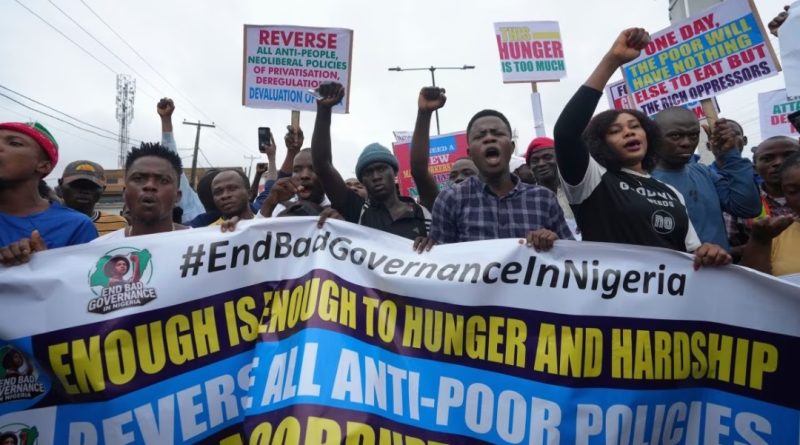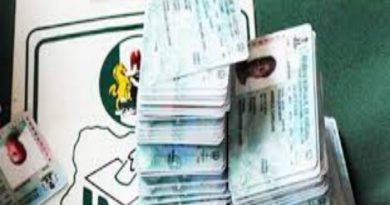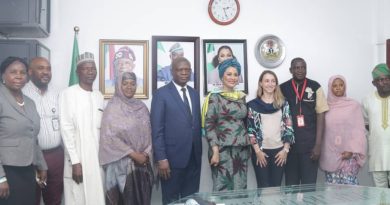Hold the Federal, State, and Local Governments Responsible for Violence and Looting- CSOs
Oru Leonard
Abuja, Nigeria – As the nationwide #EndBadGovernance protests entered their fourth day, Nigerians continued to demand action from the government, 55 Civil Society Organisations has said that the Federal, States and Local Government Councils should be held responsible for acts of violence and looting.
The protests, which began on August 1, 2024, were sparked by widespread frustration with the high cost of living, insecurity, and a government that seemed out of touch with its citizens.
Despite the peaceful nature of the protests, the government’s response had not fully addressed the protesters’ demands,
“We’re not asking for much,” said one protester, who wished to remain anonymous. “We just want a government that listens to us, that cares about our struggles and works to make our lives better.”
The protesters had given the government ample notice of their plans, mobilizing and curating their demands over several weeks. But the government’s response had been silence, followed by attempts to discredit and disperse the protesters.
“The government’s failure to address our demands has created an environment where people are desperate and angry,” said another protester.
The protesters vowed to continue their peaceful demonstrations, calling on the government to take their demands seriously and work towards meaningful change. “We won’t back down until we see real action,” said a protest leader. “We deserve better, and we won’t settle for less.”
See full text:
Abuja, Nigeria: It’s Day 4 of the nationwide #EndBadGovernance peaceful protests, and different
individuals and groups are asking for the protests to be called off.
When Nigerians — frustrated with the high cost of living, insecurity, and a wasteful government that
has refused to listen to their complaints — announced via various media that they would embark on
a 10-day nationwide protest in the hope that the government would pay attention, they were expecting a rapid response to their demands in ways that addressed their concerns.
Over the last few weeks, Nigerians have planned, mobilised, and curated different types of demands
and given the government adequate notice. Instead of responding to the substantive demands of
the protesters, the government’s response has been to suppress and delegitimize the protests using
propaganda, politics, threats, intimidation, arrests, bribery, and blackmail.
It is important to recap the government’s response to the protests so far:
1. The President has acknowledged the agitations of Nigerians and communicated some of the
government’s plans. However, the statement was woefully underwhelming in content and
lacked conviction in delivery. He did not respond to the demand of Nigerians to cut down
significantly on the high cost of governance, address insecurity and the unbearable cost of
living.
2. The Vice President labelled protest organisers ‘bandits and idiots’.
3. The Secretary to the Government of the Federation, with disdain at a press conference,
described the protests as “useless.”
4. The Senate President (second in line to the presidency) said protests can continue as long as
they (he, other government officials, and their associates) continue “eating”. “Eating” is both
a reference to the fact that the protests are about hunger, but also a euphemism for
benefitting from the government’s resources in Nigerian parlance. Mocking the people to
proceed with the protests while they continue to “eat” reeks of insensitivity and is highly
reprehensible, demonstrating a callous disregard for the predicament of Nigerians.
5. The Speaker of the Federal House of Representatives held a town hall meeting with youth on
the eve of the first day and ended with releasing a video appealing for the protests to be
called off as the government had listened.
6. The Minister of State for Police Affairs joined anti-protest protesters.
7. Several ministers have held press briefings with posters calling for pro-government protests
as their backdrop, thereby validating the rise of fake civil society in Nigeria.
8. The Nigeria Police fired tear gas and used live ammunition against unarmed protesters,
murdering citizens. This is criminal, unlawful and a grave violation of their fundamental
human rights.
5. Africa Institute for Energy Governance (AFIEGO) Uganda
6. Aspilos Foundation
7. Association of Volunteers for Community Development (AVCOD)
8. BudgIT Foundation
9. Centre for Accountability and Inclusive Development (CAAID)
10. Centre for Inclusive Social Development (CISD)
11. Centre for Journalism Innovation and Development (CJID)
12. Centre for Women’s Health and Information
13. Civil Society Legislative Advocacy Centre (CISLAC)
14. Community Alliance for Good Governance (CAGGov)
15. Community Outreach for Development and Welfare Advocacy (CODWA)
16. Dataphyte Foundation
17. Development Action for Humanity (DAH)
18. DigiCivic Initiative
19. Edo Women’s Development Initiative
20. Engage Diaspora Foundation (EDF)
21. Enough is Enough (EiE) Nigeria
22. Farnnel Women Foundation
23. Gee Foundation for Social Justice and Development
24. Gender Relevance Initiative Promotion (GRIP)
25. Gender Strategy Advancement International
26. Global Rights
27. Health Education and Human Rights Advocacy Initiative (HEHRAI)
28. HIFWAC Relief
29. Hope Behind Bars Africa
30. Initiative for Social Development in Africa (iSODAF)
31. Institutional and Sustainable Development Foundation (ISDF)
32. International Peace and Civic Responsibility Centre (IPCRC)
33. International Press Centre (IPC)
34. Invictus Africa
35. Kilimanjaro Youth Foundation
36. Media Rights Agenda (MRA)
37. Mothers United and Mobilised
38. Nigeria Network of NGOs
39. Paradigm Initiative (PIN)
40. Policy Alert
41. PROMAD Foundation
42. Public and Private Development Centre (PPDC)
43. Publish What You Pay (PWYP) Nigeria
44. Purple Women Foundation (PWF)
45. Research Centre for Development Action
46. Rule of Law and Accountability Advocacy Centre (RULAAC)
47. Sesor Empowerment Foundation
48. TAP Initiative
49. TechHer NG
50. The Meluibe Empowerment Foundation
51. The Soyinka Verity Foundation
52. We the People
53. WikkiTimes
54. Women Advocate Research and Documentation Centre (WARDC)
55. Yiaga Africa




